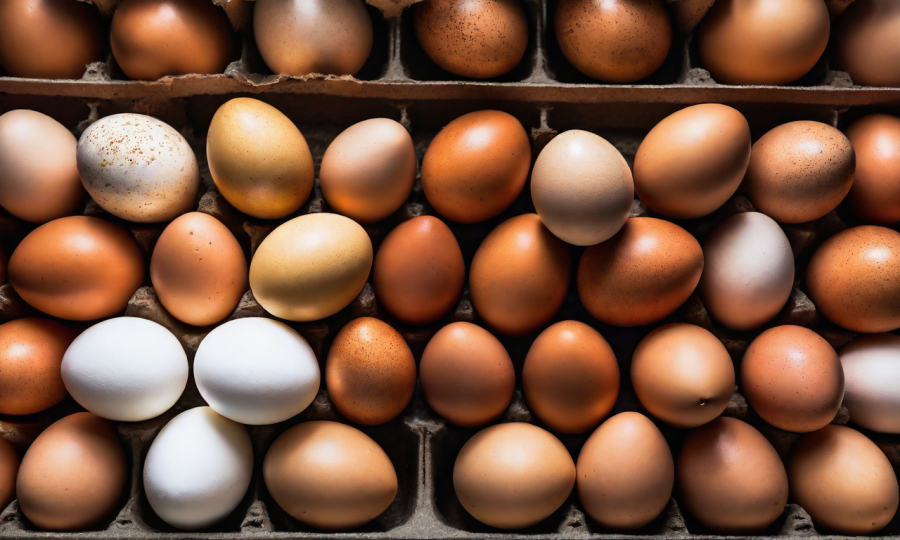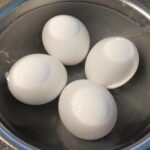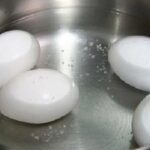Boiling eggs seems simple, but even a small mistake can cause the shell to stick to the white, making it difficult to peel and ruining the dish. If you’re looking for a way to boil eggs without cracking and sticking, just add an inexpensive, readily available kitchen ingredient.
1. Guide to Boiling Eggs Without Cracking and Easy Peeling
To easily peel boiled eggs, simply follow these steps:
- Gently place the eggs in a pot of water to avoid breakage, ensuring their integrity throughout the process.
- Once the water starts boiling, add a slice of lemon or a spoonful of vinegar.
- Continue boiling for about 5 minutes, then turn off the heat. Let the eggs sit for a few extra minutes if you don’t want soft-boiled eggs.
- Remove the eggs from the water and let them cool before peeling. You’ll be surprised at how easily the shell comes off; you might even be able to peel half an egg in one go!
The addition of lemon or vinegar prevents the eggs from sticking to the shell and cracking, resulting in a smooth, intact product ideal for salads or bento boxes.

Adding a bit of lemon or vinegar when the water boils is a must-know trick for boiling eggs without cracking.
2. How Long to Boil an Egg for a Soft Center?
Timing is crucial not just for easy peeling but also for achieving your desired doneness. Here’s a detailed guide to help you boil the perfect soft-boiled egg:
- 1–2 minutes: The egg is still raw, with both the yolk and white remaining liquid.
- 3 minutes: The white just starts to set, while the yolk remains soft and spoonable.
- 5 minutes: The classic soft-boiled egg with a runny yolk and fully cooked white.
- 7 minutes: The white is completely set, and the yolk is softly set but still creamy.
- 9 minutes: The yolk is almost set, with a little bit of moisture remaining.
- 11–15 minutes: The egg is hard-boiled, with the yolk turning a greenish-gray color and becoming firmer.
3. Essential Tips for Boiling Eggs
- Use a large spoon to gently lower the eggs into the pot to prevent cracking when they touch the bottom.
- Avoid vigorous boiling, which can cause the eggs to crack and break.
- Adding a pinch of salt to the water helps the eggs hold their shape and makes peeling easier.
- Allow the eggs to cool and dry before peeling, especially if you’re making a salad, to prevent slipperiness and facilitate mixing with sauces.
Now you know the secrets to boiling eggs without cracking. With just a touch of lemon or vinegar, you can easily and beautifully peel your boiled eggs without wasting time. Combining this trick with the precise timing for soft-boiled eggs will result in the perfect dish. This handy kitchen tip is a must-have for every modern homemaker.
9 Egg-cellent Tips to Avoid Cracked, Rubbery, and Hard-to-Peel Boiled Eggs
The art of boiling an egg may seem simple, but achieving that perfect soft, fragrant, and easily peelable egg is a challenge for many. Most people tend to just throw the eggs in a pot, turn on the heat, and wait for them to cook. However, this method often results in cracked eggs, loss of nutrients, and a difficult peeling process.





































